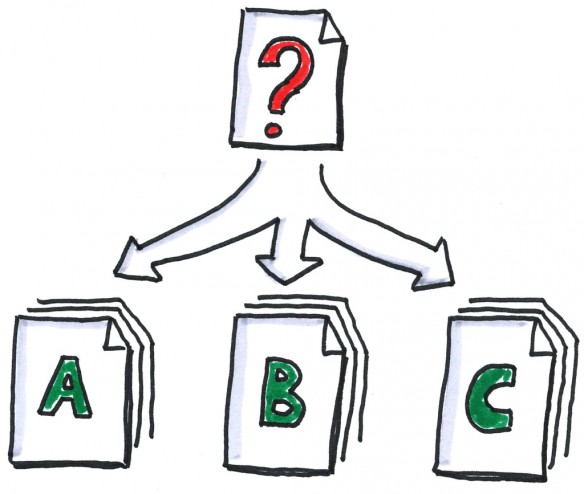Growing up as an ABC (American-Born Chinese) was quite challenging because I often had to navigate two different worlds. At school and with my American friends, I lived one existence. Back home, with my family, another.
I find that Asian and American value systems are often quite different, sometimes even in opposition.
I find that Asian and American value systems are often quite different, sometimes even in opposition. For instance, in America, independence and privacy–the right to do what I want without others interfering — is a fundamental right. In Chinese culture, the concept of a “right to privacy” is very new (articles in Economist and Statute Law Review). In traditional culture, the “individual unit,” if you will, is the family, and from this mindset, parents feel they have a parental duty to tell their children what is best. This becomes especially evident when it comes to major life decisions. In modern American society, parents clearly do not have a right to decide who their children can marry; for traditional Asian families, parents often expect veto power.
When I was in college, I wrote a paper on filiality and I asked a friend from Taiwan who was studying Physics with me about his relationship with his dad. His dad was a professor in Taiwan and clearly someone he admired; they had a very good relationship. After answering a couple of my questions, my friend said, “Okay, you want me to give you an example? Let me put it simply, if I had a girlfriend my father didn’t like. I would drop her immediately.” He said that with a straight face; he meant it.
I squinted my eyes and said, “Wow. We live in very different realities. Growing up in America, if my parents didn’t like my girlfriend, I would stick with her even more as a way to define myself as an individual.”
But sometimes these two realities collide, and if this friction is left unaddressed, it festers and becomes a place of real resentment and unhappiness.
However, outside of these major life decisions, I can simply live with the cultural tensions as a fact of life and not give it a second thought. I can usually insulate the two realities from one another and shift between the two when needed. It’s almost unconscious and instinctive. But sometimes these two realities collide, and if this friction is left unaddressed, it festers and becomes a place of real resentment and unhappiness.
What’s the solution to this conundrum?
The best answer I have found is that I have to tap into my “inherent wisdom.” This wisdom is more fundamental than my cultural upbringing or education. This wisdom simply knows the underlying principles that guides my life. It knows what to do. Actions and decisions do not come from constant thinking (usually pointless worrying) and analysis, but from a broad-minded, open, reflective space that simply responds to situations in a natural, effortless way.
How do I cultivate this wisdom?
How do I cultivate this wisdom? Again, my experience has been that this wisdom slowly unfolds when I’m around good friends and wise teachers. Interestingly enough, these “wise teachers” do not point to themselves as places of authority, but rather to the great works of sages and philosophers in the East & West such as Buddhist Sutras, Greek plays, Taoist texts, Western philosophy, and Confucian classics.
As an ABC who does not know much about my Chinese roots, it is amazing to see Western teachers who can quote Confucius (both Chinese and English). They not only quote Confucius, but they obviously admire his teachings and try to live their lives by the values he encourages: caring for parents as a joyful responsibility, sharing with others as the true source of happiness and greatness, using the arts and learning as a way to develop virtue, and learning the appropriate way in various situations to act as a refinement of one’s character.
Wisdom also does not try to take on an identity. It is not Asian or Western, modern or traditional, young or old. It functions like a great, shining mirror that illuminates and reflects everything. Over these years learning the Dharma, I have found that it is something truly worth cultivating.
The wisdom of the great, perfect mirror,
Is your own nature, pure and clear.
The wisdom that sees the identical nature of all things,
Is your mind without defect;
Subtle, wondrous observing wisdom sees all effortlessly;
And the wisdom of doing-everything-successfully is like a spotless mirror.— Chan Master Hui Neng’s response to Bhikshu Zi Tong in the Sixth Patriarch Sutra.

